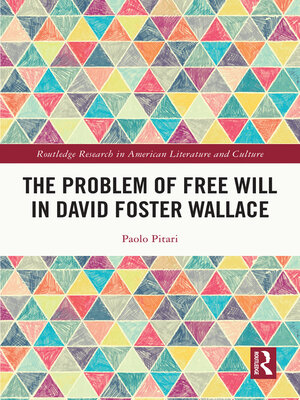The Problem of Free Will in David Foster Wallace
ebook ∣ Routledge Research in American Literature and Culture
By Paolo Pitari

Sign up to save your library
With an OverDrive account, you can save your favorite libraries for at-a-glance information about availability. Find out more about OverDrive accounts.
Find this title in Libby, the library reading app by OverDrive.



Search for a digital library with this title
Title found at these libraries:
| Library Name | Distance |
|---|---|
| Loading... |
This book argues that David Foster Wallace failed to provide a response to the existential predicament of our time. Wallace wanted to confront despair through art, but he remained trapped, and his entrapment originates in the "existentialist contradiction": the impossibility of affirming the meaningfulness of life and an ethics of compassion while believing in free will.
To substantiate this thesis, the analysis reads Wallace in conversation with the existentialist philosophers and writers who influenced him: Søren Kierkegaard, Fyodor Dostoevsky, Martin Heidegger, Jean-Paul Sartre, Albert Camus, and Ludwig Wittgenstein. It compares his non-fiction with the sociologies of Christopher Lasch, Zygmunt Bauman, Ulrich Beck and Elisabeth Beck-Gernsheim, and Anthony Giddens. And it finds inspiration in Giacomo Leopardi, Friedrich Nietzsche, and Emanuele Severino to conclude that the philosophy which pervades Wallace's works entails despair and represents the essence of our civilization's interpretation of the world.







